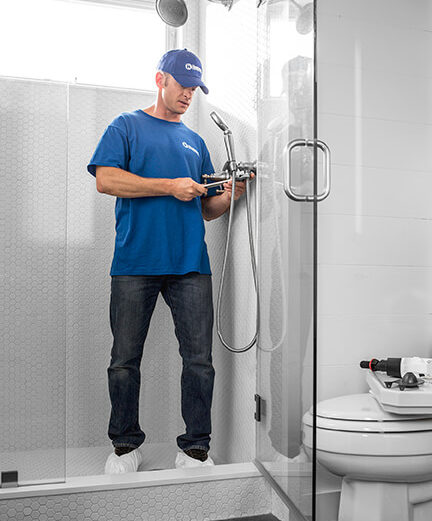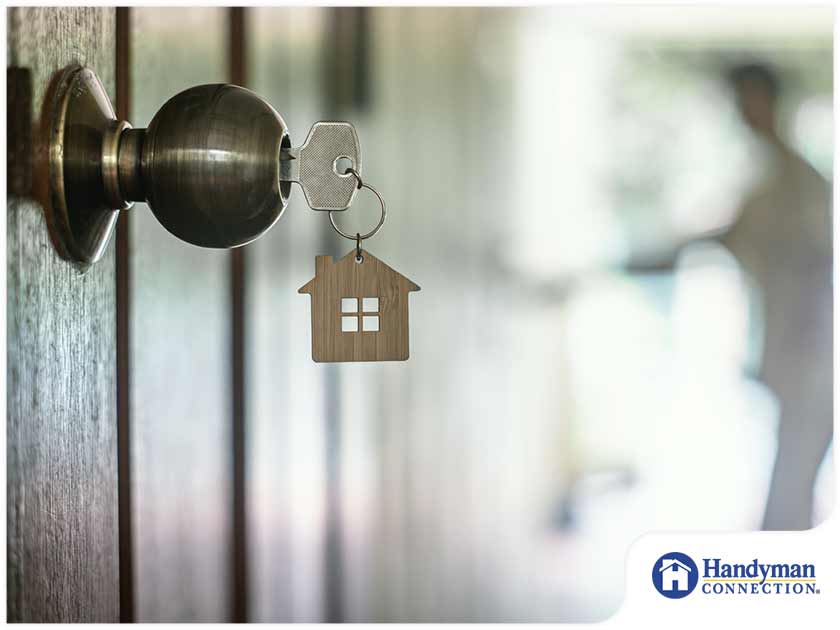Handyman Connection is a Great Fit for You! Visit our Career Page! Click Learn More.

Home Improvement / December 17, 2020

Despite their similar purposes – that is, keeping doors locked – many people are still confused about what kind of lock or bolt goes to which door. So, here’s a quick guide on choosing the right kinds of locks and bolts for your home.
Deadbolts are designed to secure exterior doors. They can withstand much force and are far more difficult to pry open, thanks to the exterior side being almost flush to the door surface. Features can vary depending on manufacturers. Some have jimmy-proof exteriors while others have two cylinders, which mean they can be locked inside and out. It’s important to remember that deadbolts are not meant to be installed on doors that provide egress during an emergency.
This is probably the most familiar type of door lock. Chances are, most of your interior doors are equipped with it. They can be locked from the inside with a turn-button or a push-button. They provide limited security and are intended more for privacy than security. Doors equipped with locking door knobs can be opened by force, which is what makes them ideal for upper-story bedrooms as they can lead to egress windows.
Cylindrical lever locks utilize a mechanism that’s similar to standard door knobs, except that the main operating pieces are levers. While most commonly used in commercial spaces, cylindrical lever locks are ideal for use by people with accessibility limitations as one can simply push the lever down to open a door. Cylindrical lever locks utilize similar interior locking mechanisms as door knob locks.
You can think of mortise locks as a combination of a deadbolt and a cylinder lever. The deadbolt part secures the door. It can be locked from the outside with a key, and from the inside with a thumbturn. The cylinder lever is there to keep the door closed. When locked, both latches prevent the door from being opened by force.
Electronic locks require a numeric code or key card (the latter typically used in hotels and offices) and can be as secure as deadbolts as long as the homeowner doesn’t forget the access code. The only consideration about electronic locks is they need to be secured against power outages, which means it has to be hooked up to a battery or a similar backup. Smart locks are a subset of electronic locks that can be operated through a smart home system, which gives access to features like remote locking and unlocking. This helps avoid those situations when you’ve already left the house, and you forgot to lock the door.
If you need to upgrade your home security, but don’t know how to install new locks, no problem. Handyman Connection® of Mason is your go-to resource for handyman services, including door lock installation. Give us a call at (513) 733-3777. You can also fill out our contact form to schedule an appointment.